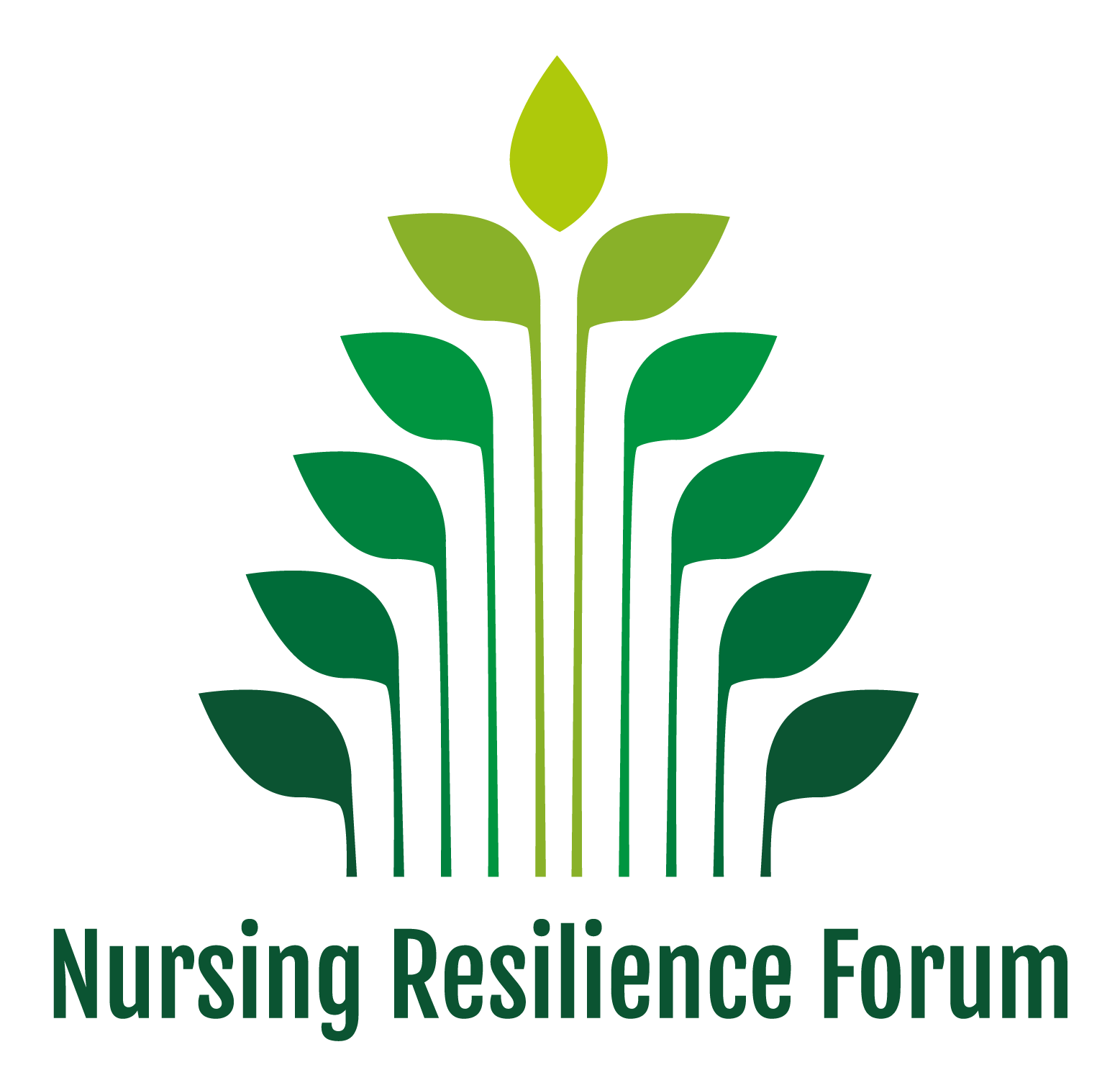Dr. Nadya Golfenshtein
 Nadya Golfenshtein received her BA in Nursing and MHA degrees from the Department of Nursing and the School of Public Health at the University of Haifa, and her PhD from the School of Nursing, University of Pennsylvania. Dr. Golfenshtein’s clinical expertise is in pediatric acute and critical settings. Her research focuses on families’ and healthcare providers’ coping mechanisms with severe pediatric illness, as resiliency indicators predicting biopsychosocial stress outcomes. As a member of the Nursing Resilience Forum, Dr. Golfenshtein, jointly with the interdisciplinary research team of the Forum, leads multi-level resilience research projects involving various populations in the Israeli and the international healthcare systems arenas.
Nadya Golfenshtein received her BA in Nursing and MHA degrees from the Department of Nursing and the School of Public Health at the University of Haifa, and her PhD from the School of Nursing, University of Pennsylvania. Dr. Golfenshtein’s clinical expertise is in pediatric acute and critical settings. Her research focuses on families’ and healthcare providers’ coping mechanisms with severe pediatric illness, as resiliency indicators predicting biopsychosocial stress outcomes. As a member of the Nursing Resilience Forum, Dr. Golfenshtein, jointly with the interdisciplinary research team of the Forum, leads multi-level resilience research projects involving various populations in the Israeli and the international healthcare systems arenas.
Dr. Einav Srulovici

Einav Srulovici is a Senior Lecturer at the Cheryl Spencer Department of Nursing. She earned her Ph.D in The School of Nursing at the University of North Carolina at Chapel Hill, NC, USA with the support of the prestigious Cheryl Spencer scholarship. She was a post-doctoral fellow at the Clalit Research Institute, Tel Aviv, Israel.
As a nurse, she is passionate about improving the quality of care nurses provide to their patients through personal and organizational resilience. Her research examines how and under which circumstances nurses’ personal resilience and organizational resilience work in concert. The infrastructure provided by a resilient organization will enable nurses to provide better care (even if they are not resilient), and the most effective way to activate higher resilient nurses will be through the application of a resilient organization. The next step in her research is how to improve both personal and organizational resilience for improved quality of care.
Prof. Anat Drach-Zahavy
 Anat Drach-Zahavy is a full professor of Organizational Psychology and the director of the research group and the MA program in Resilience in Nursing at the Cheryl Spencer Department of Nursing. Prof. Drach-Zahavy earned her Ph.D. in the Faculty of Industrial Engineering and Management at the Technion, the Israel Institute of Technology. Her interest in resilience comes from the desire to improve the quality of care and safety in healthcare organizations. Prof. Drach-Zahavy consider resilience to be a multilevel concept referring to the ability of a system (e.g. a person, a team, an organization or a nation) to adapt successfully to adversity. While most research on resilience focuses on the link between resilience and physical and emotional wellbeing, I am interested in resilience as an overall concept that affects quality and safety in health care. Specifically,
Anat Drach-Zahavy is a full professor of Organizational Psychology and the director of the research group and the MA program in Resilience in Nursing at the Cheryl Spencer Department of Nursing. Prof. Drach-Zahavy earned her Ph.D. in the Faculty of Industrial Engineering and Management at the Technion, the Israel Institute of Technology. Her interest in resilience comes from the desire to improve the quality of care and safety in healthcare organizations. Prof. Drach-Zahavy consider resilience to be a multilevel concept referring to the ability of a system (e.g. a person, a team, an organization or a nation) to adapt successfully to adversity. While most research on resilience focuses on the link between resilience and physical and emotional wellbeing, I am interested in resilience as an overall concept that affects quality and safety in health care. Specifically,
- How are personal and organizational resilience linked to a variety of outcomes, such as falls of patients in internal wards; promoting health and quality care of community nurses; and prevention of violence among children with special needs;
- How does personal resilience translate into performance?
- What are the mutual relationships between personal and organizational resilience? What is the relationship between organizational resilience and personal resilience? (Leadership, organizational culture, etc.) Or, is a department with a higher proportion of personally-resilient nurses resilient?
- How interprofessional teamwork is related to resilience
- Interventions to strengthen resilience and safety in the department
Prof. Daniel Sperling
Daniel Sperling is an Associate Professor in bioethics and Head of the Master’s Program in Nursing in the Department of Nursing at the University of Haifa, Israel. He holds an LL.B and B.A.(Philosophy) from the Hebrew University of Jerusalem and LL.M (Collaborative program in bioethics) and S.J.D. from the University of Toronto. Prof. Sperling is the author of three books: Suicide Tourism: Understanding the Legal, Philosophical and Socio-Political Dimensions (Oxford University Press: 2019); Posthumous Interests: Legal and Ethical Perspectives (Cambridge University Press: 2008), and Management of Post-Mortem Pregnancy: Legal and Philosophical Aspects (Ashgate: 2006) as well as other numerous articles and book chapters in the area of ethics, law and bioethics. His current research focuses on compassionate care in medicine and its ethical roots, palliative care, ethics of dementia care, the wellbeing of informal caregivers, and moral distress with special interest in moral resilience.
Mr. Yarden Azriel

Yarden Azriel, MHA registered nurse at the pediatric ward – Rambam Health Care Campus and PhD doctoral student at the Department of Nursing at Haifa University. In recent years, I have examined the relationship between Job Crafting strategies and missed nursing care Missed Nursing Care (MNC) among clinical mentors of nursing students. Nurses who serve as clinical mentors may also have to train a group of nursing students, so on top of routine duties, they are required to guide the next generation of nurses. The clinical mentor is forced to decide which nursing care to delay or omit (i.e., Missed Nursing Care) as a result of high workloads and limited resources. Mentors’ efforts to align the multiple job requirements with the organization’s needs and resources are called job crafting strategies, and include crafting structural resources; crafting relational resources, searching for challenging tasks, and reducing hindering tasks. By integrating these strategies by clinical mentors and examining how they contribute to improving the quality of performance, senior nursing staff may be able to significantly improve their personal capital.
Mrs. Mirit Cohen

Mirit Cohen, is a registered nurse and doctoral student at the Department of Nursing at Haifa University. Mirit investigates the phenomenon of Missed Nursing Care (MNC) from a decision- making perspective. The study focuses on examinations of factors at the patient, nurse and system level that may affect the rate of MNC, which in turn has implications for quality of care and nurse’s well- being. Understanding these factors will help in finding solutions to reduce the MNC phenomenon, which in turn will help to develop resilience both at the individual level by reducing nurse’s moral distress, improving her personal well- being and her ability to function effectively in times of crisis, and at the system level by maintaining nursing staff in the health care system and improving patient satisfaction.
Dr. Ira sharon

Ira Sharon, a registered nurse, who recently submitted her PhD in the Department of Nursing at the University of Haifa. Ira investigates the issue of accountability, with an emphasis on accountability focus (process vs. outcome accountability). The study focuses on the question of how accountability focus drives performance in nursing, alongside examining the moderating role of task complexity and personal accountability. In nursing, accountability is the basis of safety function and is an essential behavior that bridges the nurse’s actions with the standards related to the quality of care. However, the amount of empirical research on accountability in general and the differences between process and outcome accountability in the context of performance is small, especially in the field of nursing. The research findings shed light on the impact of an organizational mechanism, namely accountability focus, on nurses’ performance. Since the degree of direct supervision of nursing managers over the performance of the nurses is limited, there is a substantial need for wise use of accountability focus tools to ensure the safety of the patient and the quality of care provided to him by the nurses. Furthermore, nurses should be motivated by an accountability focus that is adjusted to their task complexity and their personal accountability, which will enable them to provide more quality and professional care.
Mrs. Marina Vexler

Marina Vexler, is a registered nurse and PhD candidate at the Department of Nursing at Haifa University. Marina investigates the phenomenon of Missed Nursing Care (MNC). The study examines the effectiveness of a Proactive Huddle intervention in reducing the MNC phenomenon. The intervention is implemented among nursing staff with the aim of improving the situational awareness and personal accountability of nurses, thereby improving the quality of nursing care. Huddle method could help to improve a nurse’s personal sturdiness to deal with various challenges during the shift. The study supports the improvement of organizational sturdiness in the inpatient wards that are characterized as demanding and stressful work environment.
Dr. Nasra Abdelhadi

Dr. Nasra Abdelhadi graduated from Haifa University, Department of Nursing. A registered nurse with a master’s degree in health promotion from the School of Public Health, University of Haifa, she works as a clinical guide and a teacher at Shineprone Nursing School, Ichilov Medical Center. Her research examines nurses’ missed care decisions. The main aim of Nasras’ study was to examine the relationships between decision-preference structures and missed care and the moderating effects of decision-making styles and task type in these links. Through understanding these relationships, she will be able to find solutions to decrease the MNC phenomenon, which will, in turn, enable nurses to reduce their moral distress, increase their resilience and improve patient satisfaction.
Mrs. Tamar Vechter
Tamar Vechter, is a registered nurse and doctoral student (final stage) at the Department of Nursing at Haifa University. Tamar investigated the effect of nurse personal resilience on patient fall prevention in acute settings. The occurrence of falls during hospitalization is a serious threat to the patient’s safety and a major issue in terms of the quality of care in hospitals. Most of the literature discussed the use of bundled fall prevention programs, suggesting that there is no one intervention that significantly reduces falls in the acute inpatient setting. Interventions including Standardizing patient-care routines. In my opinion, patient fall prevention requires more than just following rules. Resilience, namely the ability of individuals to proactively monitor and anticipate problems may improve patients’ quality and safe care, e.g. patient fall prevention. Findings of this research demonstrated that three successive resilience strategies, starting with skepticism, through cognitions of anticipation the worst-case scenario that could happen to the patient, and concluding with proactive behaviors, help nurses to prevent patients’ falls. The findings have important implications for practitioners aiming to reduce inpatient falls by fostering safe and quality care among nurses. They point at the crucial role of nurturing nurses’ skepticism, anticipation and proactivity capabilities at the workplace
Ms. Grace Qamar

Grace Qamar, a registered nurse and a third-year PhD student in the nursing department at the University of Haifa. Grace investigates the phenomenon of moral distress (MD) among the nursing staff in Israel. The overarching purpose of this proposed study is to address and thoroughly analyze the conceptual, definitional, and methodologic difficulties that limit the concept’s utility for researchers and healthcare practitioners in a way that is evidence-based and encompasses the mechanism of MD together with its important theoretical elements, including ethical dilemmas, moral judgment, personal characteristics of the nurse, patient characteristics, moral resilience, moral agency, moral awareness (also referred as moral sensitivity), ethical knowledge, work-related concerns (ethical climate, resources, personnel), social construction of nursing, and psychological distress. Resilience is considered a positive adaptation strategy to recover from MD. On an organization level, in order to build resilience for MD, it is argued that institutions need to improve their foundation and integrate new infrastructure, enhance work teams, invest in staff education, teach respectful communication, and build relationships among professionals
Mr. Mohand Dohi

Mohand Dohi, a doctoral student in the nursing department at the University of Haifa, is a clinical mentor with 13 years of experience working in the surgery department at the Galilee Medical Center. My second degree research focused on patient safety culture and nurses’ intentions to report near errors, identifying elements of patient safety culture that could predict reporting intentions. This finding motivated me to explore how nurses’ personal factors affect their performance, considering systemic factors. Currently, I am working on a study examining the moderating factors between accountability focus and nurse performance. Accountability involves the willingness to accept responsibility and work transparently. My research aims to determine the optimal accountability focus (process, outcome, or unfocused) for motivating nurses, particularly during complex tasks, and to explore the role of personality traits such as goal orientation in this relationship.
Mrs. Shlomit Ilan

Shlomit Ilan brings a wealth of experience in healthcare management and advanced nursing practice to her role as a PhD candidate at the University of Haifa. With an M.A. in Advanced Clinical Nursing from Hebrew University and a background in leading healthcare units, Shlomit focuses her research on enhancing resilience among direct caregivers. Her work seeks to improve care quality and caregiver well-being by developing effective strategies to manage and mitigate challenging behaviors in care settings. Shlomit’s approach combines her extensive practical experience with a strong theoretical foundation in resilience, aiming to create impactful changes in residential care facilities.



